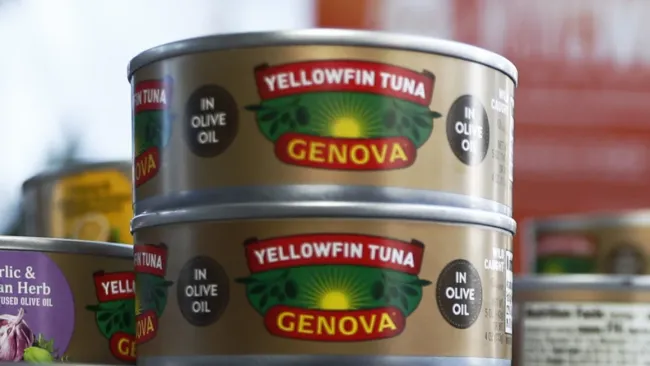Canned Tuna Recalls: What You Need to Know About the Botulism Risk at Trader Joe’s, Costco, Walmart, and More
A major voluntary recall has been issued for canned tuna products sold at popular retailers like Trader Joe’s, Costco, Walmart, and others due to a potential botulism contamination risk. Here’s a breakdown of the critical details to keep you informed and safe.
What’s Happening?
Tri-Union Seafoods, a California-based subsidiary of Thai Union Group, announced the recall after discovering a manufacturing defect in the “easy open” pull tab lids of certain canned tuna products. The defect could compromise the seal, allowing contamination by Clostridium botulinum, a bacterium that produces a deadly toxin causing botulism—a rare but life-threatening illness.
No illnesses have been reported so far, but the recall was issued proactively to prevent potential harm. Affected products include tuna sold under the Genova, Van Camp’s, H-E-B, and Trader Joe’s labels.
Which Products and Stores Are Affected?
The recalled tuna was distributed across 26 states and Washington, D.C., with specific brands linked to certain retailers:
- Trader Joe’s label: Sold in Delaware, Illinois, Indiana, Iowa, Kansas, Kentucky, Maryland, Michigan, Minnesota, Missouri, Nebraska, New Jersey, New York, North Carolina, Ohio, Pennsylvania, Virginia, Wisconsin, and Washington, D.C.
- Genova 7-ounce cans: Available at Costco in Florida and Georgia.
- Genova 5-ounce cans: Sold at Harris Teeter, Publix, H-E-B, Kroger, Safeway, Walmart, and independent retailers in Alabama, Arizona, Arkansas, California, Florida, Georgia, North Carolina, New Jersey, Tennessee, and Texas.
- Van Camp’s label: Distributed through Walmart and independent stores in Pennsylvania, Florida, and New Jersey.
- H-E-B label: Exclusively in Texas.
Key identifiers: Check for specific can codes, UPC numbers, and “Best By” dates (mostly in 2027 and 2028) listed in the FDA’s recall notice.
What Should Consumers Do?
- Stop using the product immediately, even if the tuna appears or smells normal. Botulism toxins are odorless and tasteless.
- Return the cans to the retailer for a full refund or dispose of them safely.
- Contact Tri-Union Seafoods to request a retrieval kit and replacement coupon.
- Seek medical attention if you experience symptoms like blurred vision, muscle weakness, difficulty breathing, or nausea after consumption.
Understanding Botulism Risks
Botulism is caused by a neurotoxin that attacks the nervous system, leading to paralysis and respiratory failure. Symptoms typically appear 12–36 hours after exposure and include:
- Difficulty swallowing or breathing
- Drooping eyelids, blurred vision
- Slurred speech, muscle weakness
- Nausea, vomiting, or diarrhea (specific to foodborne cases).
While botulism is rare, it is a medical emergency. Prompt treatment with antitoxins is critical.
Why This Recall Matters
This incident highlights broader concerns about food safety in manufacturing. While recalls are increasingly common due to stricter quality controls, defects like faulty seals underscore the importance of vigilance in packaging design—especially for shelf-stable products like canned goods.
Final Takeaways
- Check your pantry: Look for recalled products using the FDA’s detailed list.
- Spread awareness: Share this information with friends or family who shop at the affected retailers.
- Stay informed: Subscribe to FDA recall alerts or retailer newsletters for updates.
While no illnesses have been linked to this recall, proactive measures can prevent potential tragedies. When in doubt, throw it out!
